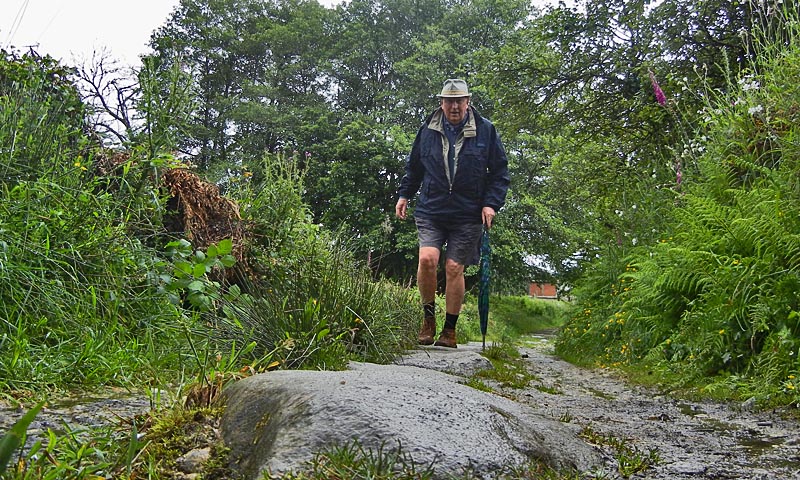 Jazclass supports Médecins Sans Frontières and World Vision
Jazclass supports Médecins Sans Frontières and World Vision
How to travel - Hotels - Travel clothing - Germany - The
Netherlands - France - Spain - Australia
(Down - Top)
EU 1 - How to Travel
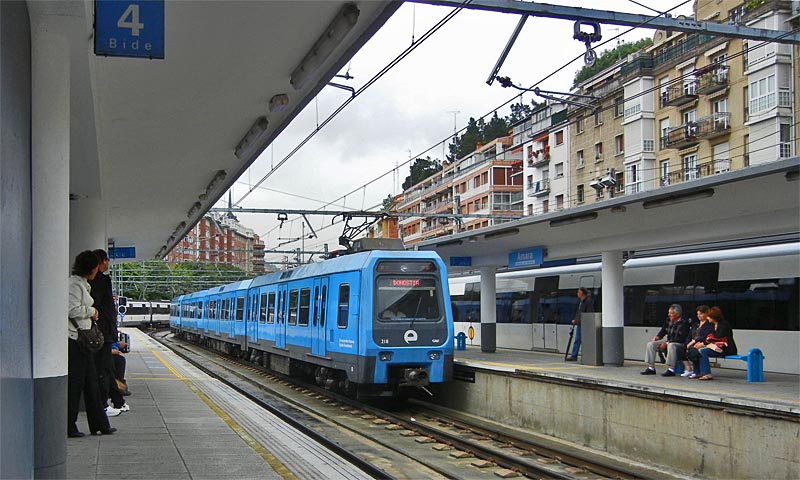 These days traveling by car in Europe is sheer folly. I traveled by car in
2008 and experienced the following drawbacks :
These days traveling by car in Europe is sheer folly. I traveled by car in
2008 and experienced the following drawbacks :
- High Toll fees in France
- Long cues in Germany and The Netherlands
- Parking at Hotels is not available or you have to pay extra
- Stressful, especially in inner cities
Public transport, by train and bus, is excellent through most of Europe,
certainly the countries I usually visit. If you reside outside Europe you are eligible
to buy a Eurail Pass which is excellent value. You travel 1st Class*
for a specified number of (individual) days (or a continuous period) and
select any 3-5 countries to travel through (or take a "Global Pass").
The Pass comes with a map showing all rail and sea link connections in Europe
and a booklet with timetables.
(* : Persons under the age of 25 have a cheaper Economy class travel option)
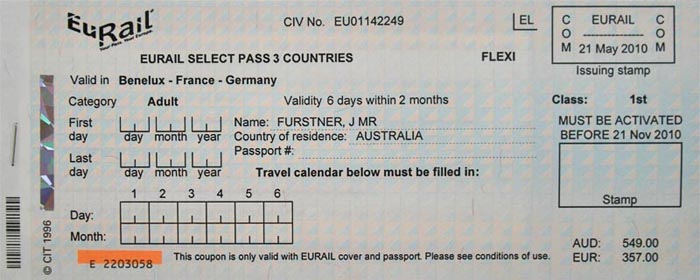
The German Rail (DB : Deutsche Bahn) has an excellent website where you can
specify a rail connection between any two European cities and it
presents you with a choice of exact time tables and the trains (and/or busses) you should
use. Planning your trip could not be easier.
Eurail recommends that you make seat reservations (€4 in Germany -
€3 in France - €10 in Spain) well before you travel. This is
especially important for France and Italy which are reluctant participants
of Eurail and make only limited seats available on some popular routes. So
make sure to book there at least 6 weeks in advance if you possibly can. In
all other countries in Europe you will have no trouble whatsoever.
On the odd occasion that the public transport does not get you where you want
to go, just take a taxi, hire a car for the day, or perhaps even an electric bicycle (€20 per day).
Visitors to the Black Forest pay €1.35 tourist tax per day, but
receive for this a Kronus Karte with which you can travel for
free on all trains and busses throughout the region. This is a huge
benefit, enjoyed by all. You can do many day walks getting off a train or bus at one point and getting on again where-ever you finish your walk.
Search for Rail connections in Europe
The German Railways, Deutsche Bahn (DB) website is in my experience by far the best way to check out rail connections through all of Europe. I use it every time I travel through Europe.
It displays everything you need to know up to 3 months ahead of the day you do your search.
If your travel date is more than 3 months ahead of the day of your enquiry make sure you put in an arbitrary date within the 3 months time span. This will give you all the info you need to plan your travel. Most rail connections more than 3 months ahead won't change, but just check again a month or so before you start your journey.
(Down - Up - Top)
EU 2 - Where to Stay
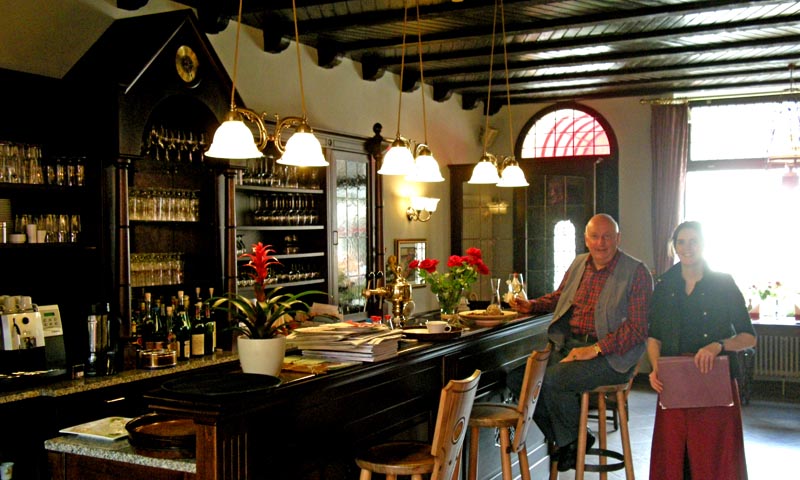 I always find most of my Hotel accommodation by means of the Lonely
Planet Travel guides. I have used them now for 5 years and they have not
let me down even once! So that is for anyone a great place to
start.
I always find most of my Hotel accommodation by means of the Lonely
Planet Travel guides. I have used them now for 5 years and they have not
let me down even once! So that is for anyone a great place to
start.
Perhaps surprisingly in found Germany to be the cheapest
place to find quality accommodation and always with a good breakfast
included.
Portugal is cheap too, Spain slightly less so, and France
followed by The Netherlands progressively dearer. But in any of these
countries you will generally be able to find reasonable Hotel accommodation for
$100 or less per night.
Here a list of Hotels where I stayed and which I definitely can recommend to
you.
Hotels in :
France
-
Germany
- Holland
- Spain
2014
I will be traveling through Europe again this year (September & October 2014) and report on my findings after my return.
This time I have selected a dozen or so hotels through Booking.com which appears to be a good alternative to the LPG.
(Down - Up - Top)
EU 3 - What to wear
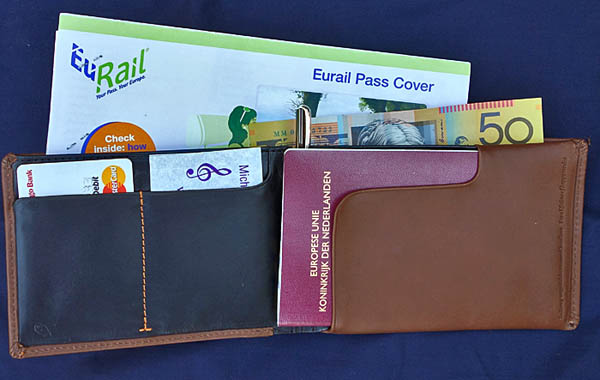 If your travel mode is similar to mine : lots of
walking (but no rock climbing) and the occasional
bike ride, then here are some suggestions for top
quality items to wear and take with you on your
travels.
If your travel mode is similar to mine : lots of
walking (but no rock climbing) and the occasional
bike ride, then here are some suggestions for top
quality items to wear and take with you on your
travels.
(I have purchased, and paid for, all items mentioned below myself for my upcoming trip to Europe in September 2014, without any incentives from the companies involved !)
1. Light weight, easy care
clothing
Kathmandu produces
quality clothing made from high tech materials for
the discerning traveler. I particularly like their
shorts, shirts, pullovers, singlets and super light
wind-jackets. Their superb Merino wool products are
an absolute dream to wear.
I travel using a
carry-on bag only and Kathmandu's light weight
products enable me to take quite an extensive
wardrobe with me.
2. Trousers to wear
anywhere
Kathmandu has a wide range of long trousers, but
they are useful for tracking only. They look quite
unsightly and I therefore don't buy them.
Instead I purchased a pair of trousers from
Bluffworks. They are light
weight, non-crease, quick drying, and look
fantastic.
You can wear them on your walks or on your bike,
while at the same time looking quite fashionable in
a restaurant or even a boardroom.
The trousers have two large hidden away safely zipped
up pockets for money, credit cards, passports etc.
Nothing can fall out and no thief can get near
them.
3. Foot
wear
For nature walks you simply can't get past the Original Clarke Desert
boots.
Originally designed in 1950 and
popular with the UK soldiers when off duty from
guarding the Suez Canal, they still are an absolute
classic.
I used to wear them in the late 1960s
when exploring the West Australian desert as a
geologist, but now use them again for all my walks.
Their soft leather and their flexible crêpe rubber soles make them the most comfortable boots you will ever
wear. The company's advise is you order half
a size larger than your normal size. (I took their advise and my boots fit very comfortably wearing thick bamboo fibre socks.)
While you are at it you might as well also buy a
pair of bamboo fibre socks. They are anti-bacterial and won't smell, even after wearing them
for a week without washing.
You can get them at
the Top Saddlery.
(Bamboo fibre socks take longer to dry after washing. They now have a quicker drying version on offer which I recommend you should buy.)
4. Travel
wallet
Bellroy makes a beautiful
leather travel wallet which contains spaces for
credit and business cards, your passport, travel
documents, money, even a sim card. It also includes
a small ball point.
Bellroy's main focus
(besides quality) is a slim line design for all
their products. The Travel wallet will fit easily
in the (secret left hand) zipped trouser pocket of your Bluffworks trousers (without showing any bulge whatsoever).
(Down - Up - Top)
EU 4 - Germany
 Here you find my descriptions and photos of the following places :
Here you find my descriptions and photos of the following places :
- Altenahr - On the Ahr river - Germany's
red wine district.
- Baden Baden - beautiful city with its
spas, elegant shops and 19th Century charm.
- Bernkastel-Kues - famous white wine
region on the river Mosel.
- Black Forest - Walks galore in this
region of forests, bubbling streams and quiet lakes.
- Boppard - on the Romantic Rhine
with its ancient castles and legend of the Lorelei.
- Mainau - the Flower island in the
Bodensee.
- Romantische Strasse - the Romantic
Road with its Medieval towns Füssen, Nördlingen,
Dinkelsbühl and Rotenburg ob der Tauber.
(Down - Up - Top)
EU 5 - The Netherlands
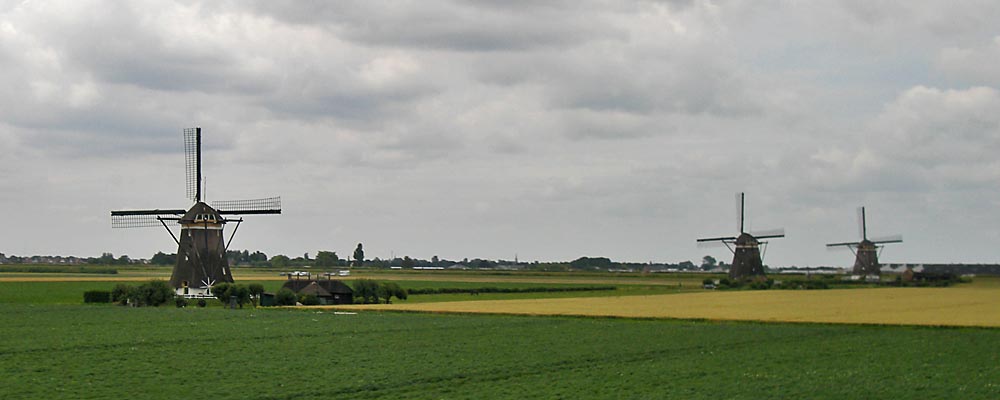 I guess you are going to Amsterdam anyway. I am not into big cities and have
not been there in 30 years, but the following places are definitely worth
visiting.
I guess you are going to Amsterdam anyway. I am not into big cities and have
not been there in 30 years, but the following places are definitely worth
visiting.
- Scheveningen - Holland's main seaside resort. Don't miss the Beelden aan Zee underground museum.
- Panorama van Mesdag - in The Hague : a 360° painting,
35 meters in diameter, depicting Scheveningen as it was 120 years ago.
- Kröller Müller Museum - in the Hoge Veluwe National Park, feturing Van Gogh and many other modern masters.
- Weerribben - travel through this
nature reserve in a whisper boat amongst the abundant water and bird life.
- Dolmens - 54 Stone-age graves in the province of Drenthe.
(Down - Up - Top)
EU 6 - France
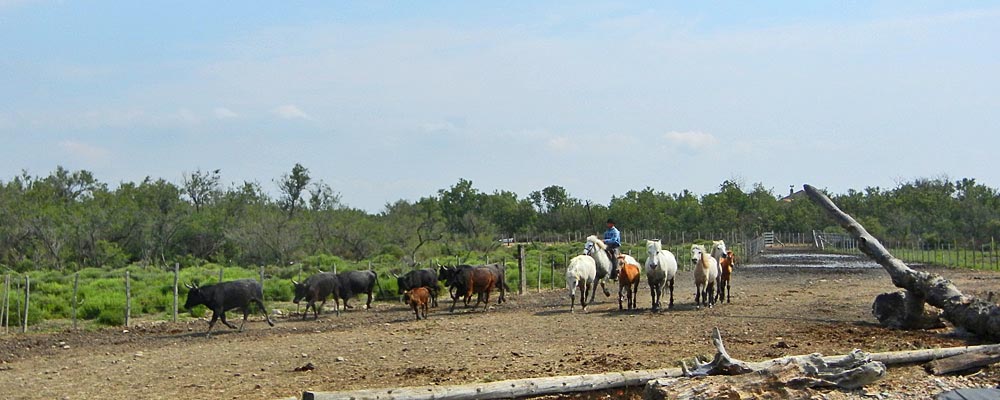
I am not a great fan of France, and usually travel through it as fast as I
can (unlike in Germany, Spain or Holland, I never feel welcome there), but a
visit to the Camargue in the South of France is well worth the effort.
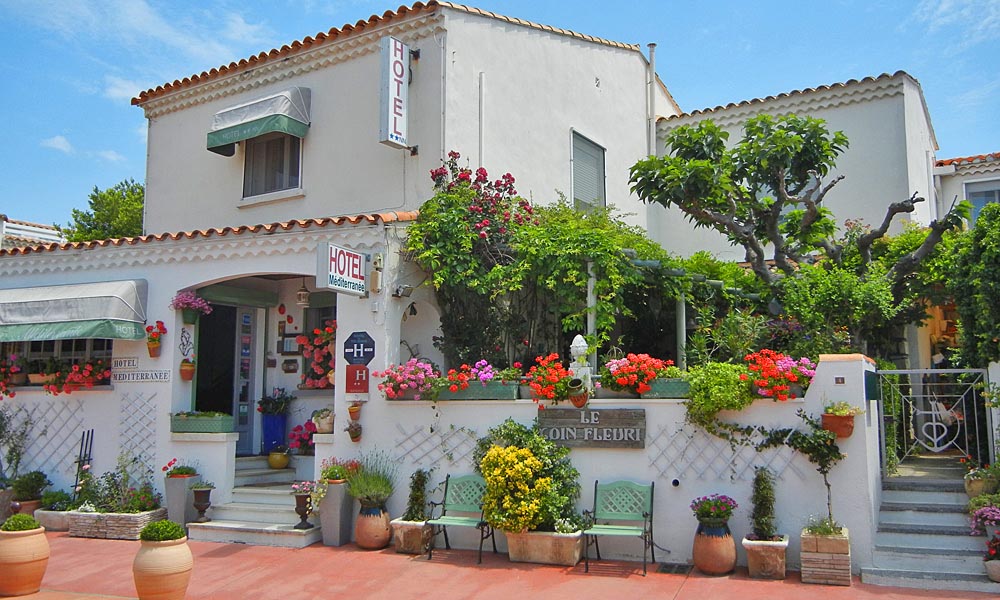 The best place from which to explore this area is Saintes Maries de la
Mer right on the Mediterranean coast (and with sandy beaches, no
pebbles!).
The best place from which to explore this area is Saintes Maries de la
Mer right on the Mediterranean coast (and with sandy beaches, no
pebbles!).
Lots of seafood restaurants, a French bull ring, and a harbour
from which you can take a cruise onto the Petit Rhône.
Unfortunately
a large part of the region is now farmland for growing potatoes and rice and
for grazing of the white horses and black bulls (mostly oxen). The pink flamingos are to be seen on the
water right behind the town.
To get there take the train to Arles (in the Provence), then right
opposite the Railway station is the main Bus Depot with a regular connection
to Saintes Maries de la Mer.
Hotel Mediterrannee is a
good place to stay, right on the town's main street and only a stone throw
from the harbour. It has small but comfortable rooms and a nice terrace on
which breakfast is served. In 2012 it had no Wifi, but Internet access
is available at the local Kebab shop.
For a guided tour in 4-wheel
drive vehicle, ask for Jerry, the
local Tourist office will tell you how to contact him.
Hotel -
Photos -
Map
(Down - Up - Top)
EU 7 - Spain
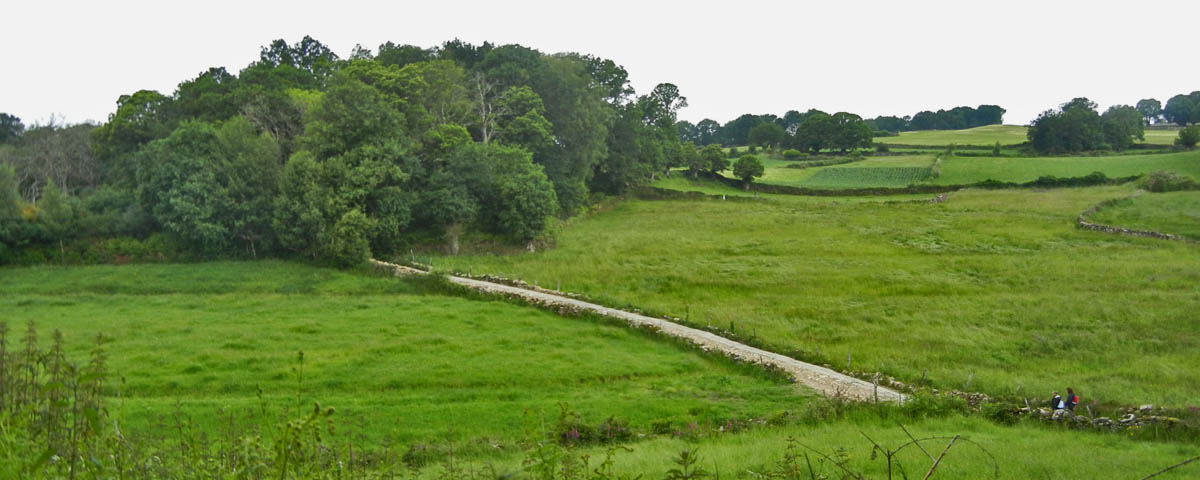 Lots to explore in this wonderful country.
Lots to explore in this wonderful country.
- Cadaqués - fishing village in a National Park in NE Spain, also the home of Salvador Dali.
- Camino de Santiago - A one week long walk covering the most scenic segments of the Camino Francés between Astorga and Santiago de Compostela.
- Mijas - a picturesque white village on the slopes of the
Costa del Sol with the only oval shaped bullring in Spain.
- San Sebastian - elegant coastal city on the
Gulf of Biscay, also the Tapas capital of Spain.
- Teatre Museu Dali - don't miss the Salvador Dali museum in Figueres.
(Up - Top - Jazclass Links)
© 2014 Michael Furstner
|
 Jazclass supports Médecins Sans Frontières and World Vision
Jazclass supports Médecins Sans Frontières and World Vision
 I guess you are going to Amsterdam anyway. I am not into big cities and have
not been there in 30 years, but the following places are definitely worth
visiting.
I guess you are going to Amsterdam anyway. I am not into big cities and have
not been there in 30 years, but the following places are definitely worth
visiting.
 Lots to explore in this wonderful country.
Lots to explore in this wonderful country.






